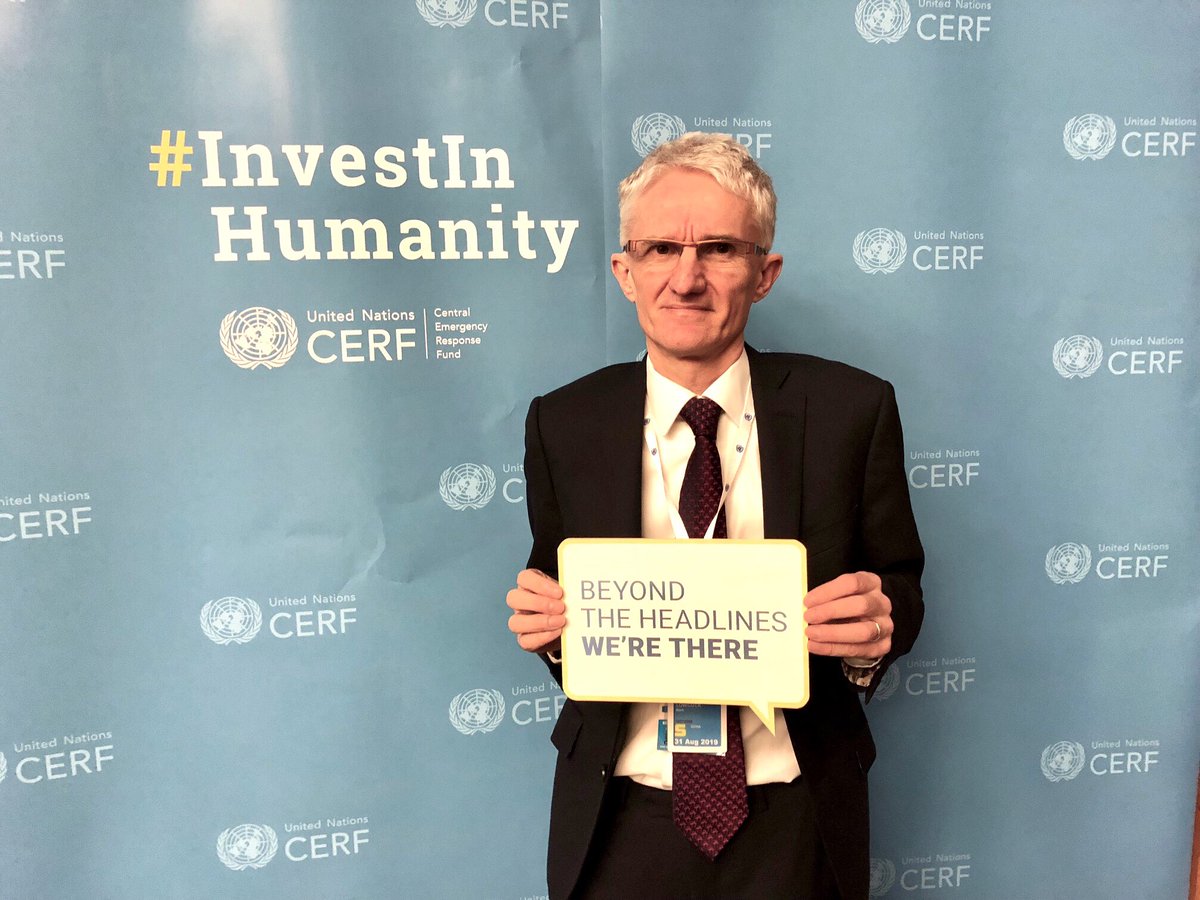Canada News
Canada a leader, but more must be done for women in conflict zones: UN official

Mark Lowcock, who also serves as the emergency relief co-ordinator for the humanitarian affairs office of the UN, delivered remarks in Ottawa on Friday as part of a panel discussion delving into the growing need for a more gender-responsive approach to humanitarian emergencies. (File Photo: @UNReliefChief/Twitter)
OTTAWA – Canada is a trailblazer when it comes to assisting women in humanitarian crises around the world, but far more needs to be done to improve outcomes for women and girls in conflict zones, says the United Nations Under-Secretary-General for Humanitarian Affairs.
Mark Lowcock, who also serves as the emergency relief co-ordinator for the humanitarian affairs office of the UN, delivered remarks in Ottawa on Friday as part of a panel discussion delving into the growing need for a more gender-responsive approach to humanitarian emergencies.
He applauded the Trudeau government’s feminist international assistance policy – which includes a plan to eventually ensure 95 per cent of Canada’s foreign aid goes toward initiatives that improve the lives of women and girls – as an example for other countries to emulate.
But he also pointed to many examples of women who continue to face extreme risks of sexual and gender-based violence in areas of conflict around the world, saying more needs to be done to ensure humanitarian aid actually helps the women and girls who are being disproportionately affected.
“The world’s humanitarian agencies do a good job in saving lives and reducing suffering among people caught up in conflict,” Lowcock said. “But we do not do a good enough job for women and girls.”
The Yazidi women who were forced into sexual slavery in Iraq and Syria. The Chibok girls kidnapped in Nigeria. The Rohingya refugees who were gang raped, tortured and lost family members in brutal mass slaughters in Myanmar. These are the stories of women in crisis zones that have captured the world’s attention, Lowcock said, pointing also to women he has met in other regions who continue to live in dangerous situations with fewer opportunities than men to thrive.
Humanitarian assistance often does not address the specific needs of women, he said.
Every day more than 500 women and girls die from pregnancy and childbirth complications in crisis-affected countries. Also, inadequate help with menstrual hygiene keeps girls confined to tents and shelters, preventing them from accessing services and limiting their mobility.
Girls in conflict zones are more than twice as likely as boys to be out of school and women are often more likely to be infected in disease outbreaks because their cultural practices make them caregivers of the sick.
These are all areas that highlight why women’s needs must be top-of-mind and at the decision-making table when humanitarian aid is rolled out to crisis zones, to ensure they are not only free of further victimization, but also more empowered, Lowcock said.
“Let me be clear that we are making strides in the right direction with all these challenges. But let me be equally be blunt – far more needs to be done.”
One key element is the way in which humanitarian aid is donated.
Often money raised through the UN or other aid organizations comes with conditions attached by donors that it must be spent on certain things, such as immunizations or specific programming. This may not be what women need most for themselves and their families, said Julie Delahanty, executive director of Oxfam Canada.
“That’s not an empowering feeling for the women who are receiving that cash,” she said.
“We have to be asking them what kind of modality they want that assistance in – they may prefer food, and if they prefer food, what kind of food do they want? We often don’t ask them such basic questions.”
Oxfam Canada published a report in October that took a close look at how Canada provides international humanitarian aid and the gaps that exist when it comes to outcomes for women and girls in refugee situations.
It noted that while Canada has made great improvements with its focus on gender equality and feminism as part of its domestic and foreign policy agenda, Canada’s international assistance spending is at a near-historic low, reaching 0.26 per cent of gross national income, as compared to the UN aid target of 0.7 per cent.
The organization has called on Canada to develop a 10-year plan to achieve the United Nations aid target and also wants Canada to dedicate a slice of its humanitarian assistance to the needs of women and girls.
International Development Minister Marie-Claude Bibeau, who also took part in the panel on Friday, pointed to the steps the Trudeau government has already taken, pointing out that half of humanitarian programs previously funded by her department were “completely gender blind,” which has been almost entirely reversed.
“We are making this big, big shift, making sure all our humanitarian partners are paying attention to the specific needs of women and girls,” Bibeau said. “And not only seeing them as beneficiaries or victims, but really bringing local women around the table for decisions and making sure that throughout implementation of projects, they are building their capacities their leadership, providing opportunities for empowerment.”





















